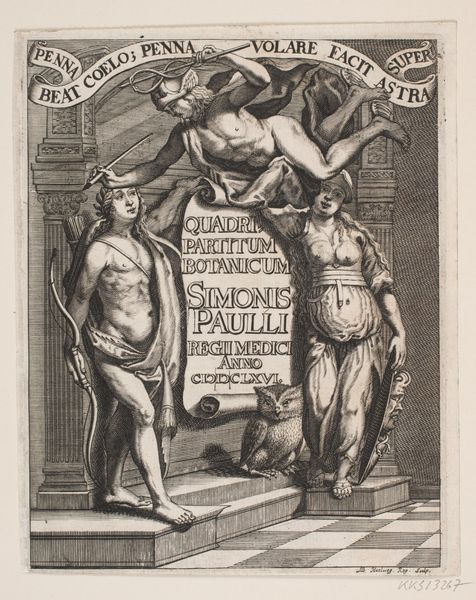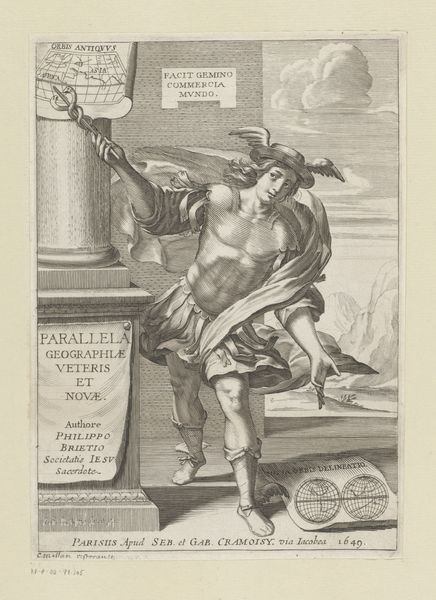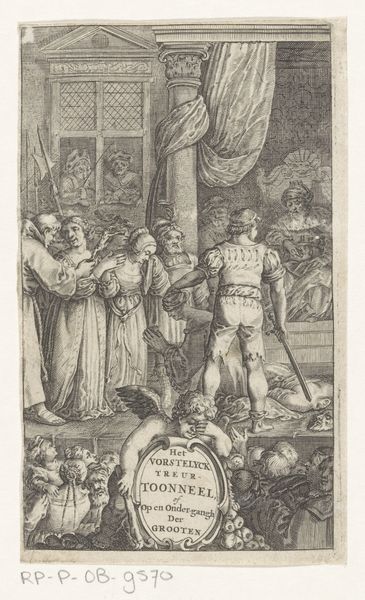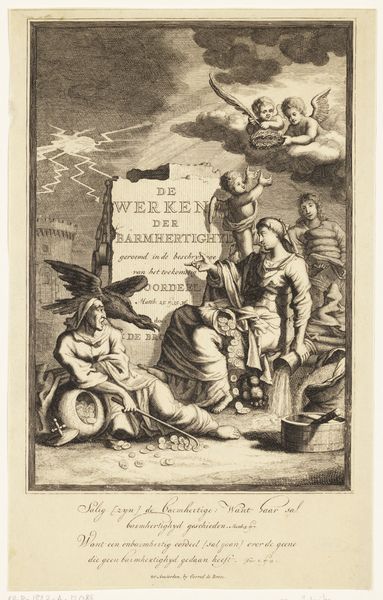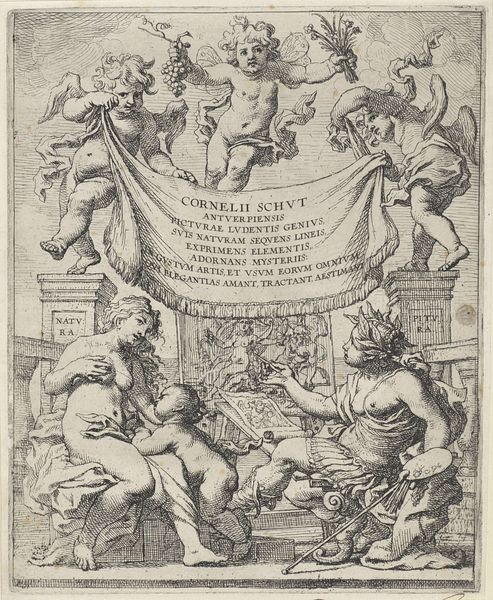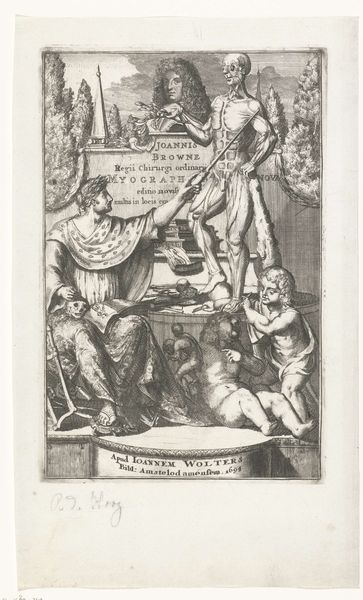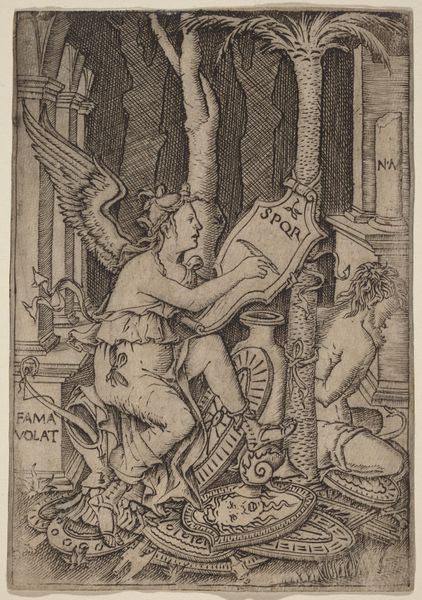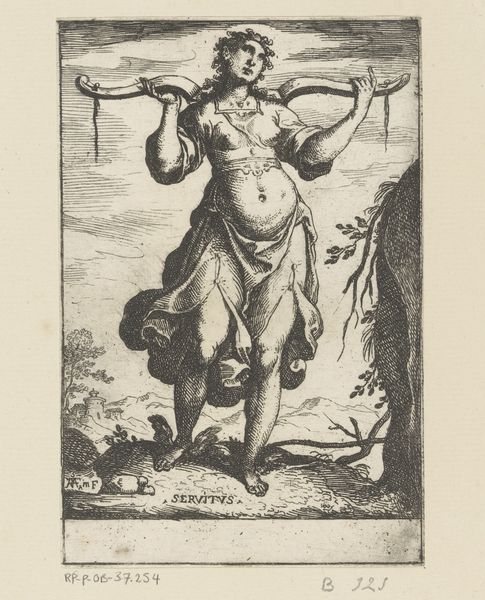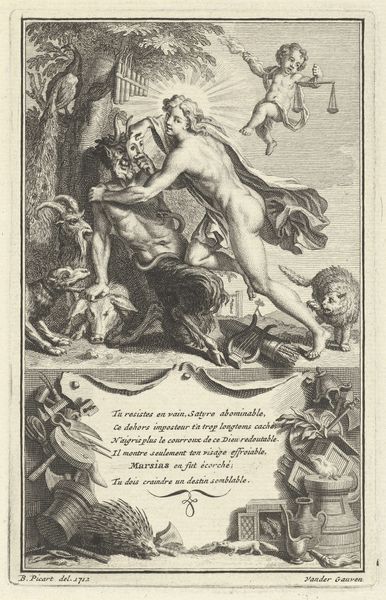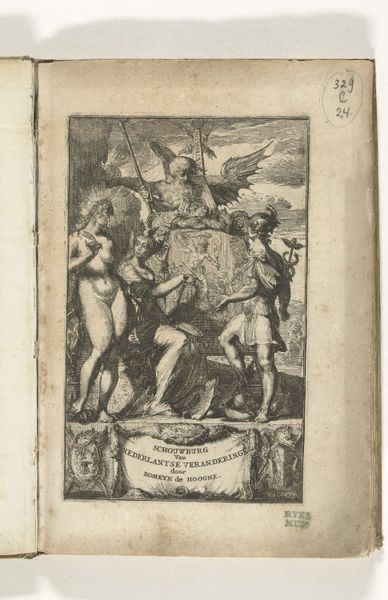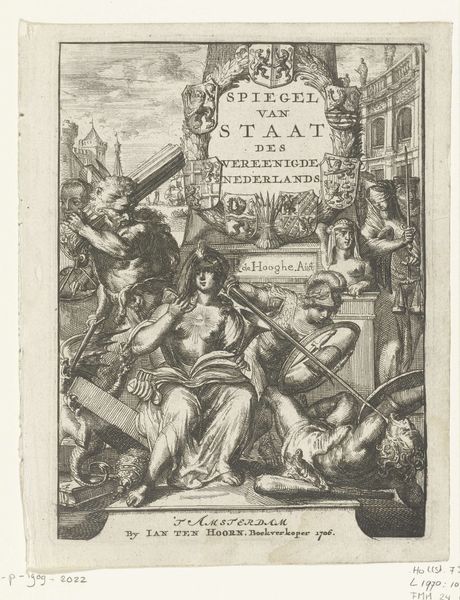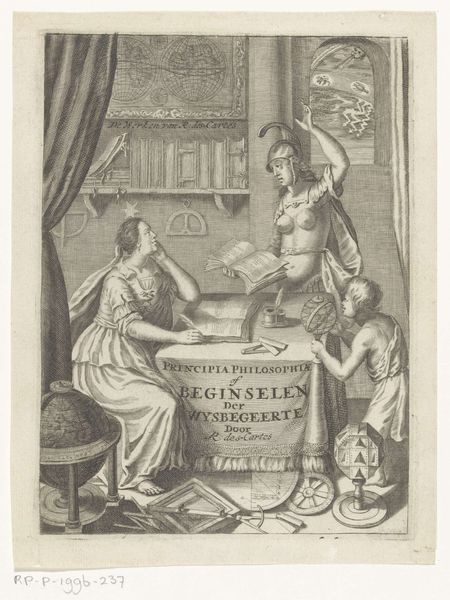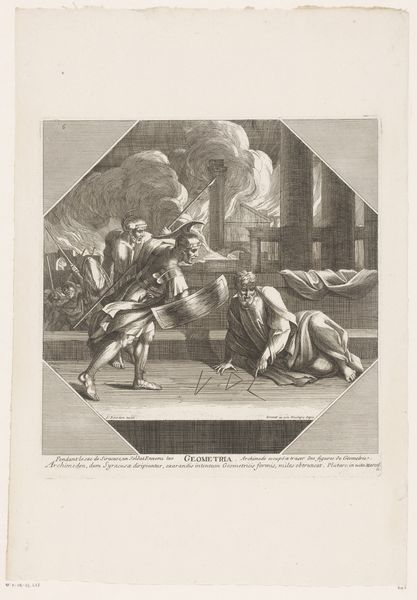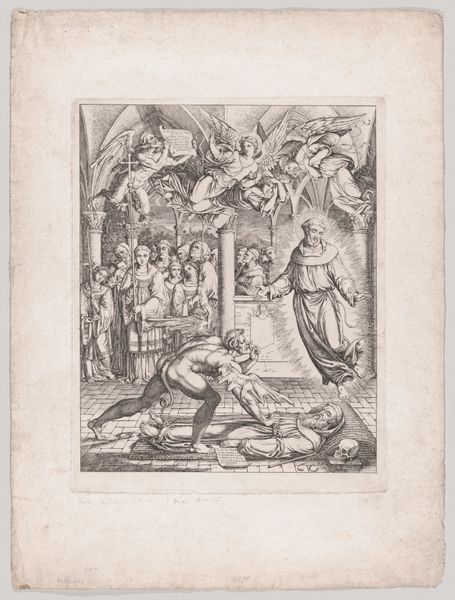
Titelblad til Simon Paulli, "Quadripartitum Botanicum", 1667 1667
0:00
0:00
graphic-art, print, engraving
#
graphic-art
#
allegory
# print
#
11_renaissance
#
history-painting
#
engraving
Dimensions: 191 mm (height) x 147 mm (width) (plademaal)
Curator: Albert Haelwegh created this engraved title page in 1667 for Simon Paulli's "Quadripartitum Botanicum." The print allegorically introduces Paulli's comprehensive work on botany. Editor: My initial impression is how densely packed it is with figures and symbols! The stark black and white contrasts give it a dramatic, almost theatrical feel. There's a lot to unpack here, literally and figuratively. Curator: Precisely. Haelwegh constructs a visual argument about the power of knowledge. Note how Mercury, representing intellect, crowns a figure, suggesting the rewards that scientific endeavor brings. Editor: I see it more as a comment on the societal construction of knowledge. The classically-posed figures feel like deliberate nods to established authority, which could both legitimize Paulli's work and subtly critique the exclusionary nature of academia at the time. That female figure feels almost grudgingly included. Curator: That's an interesting perspective. I'd add that the architectural framing suggests how institutional structures shaped the context in which the knowledge contained in Paulli's work was both produced and understood. It gives his scholarship validity, which was no minor feat then. Editor: Yes, and even the owl at the bottom right—typically associated with wisdom—feels gendered somehow, mediating between the male intellectual domain and the woman with her somewhat obscured tools. Is she the physical embodiment of nature tamed? Curator: One could interpret her that way. Considering the historical period, it is plausible. It would suggest humanity's—specifically man's—dominion over the natural world through scientific study. Editor: Exactly, which begs the question: for whom? Whose knowledge is being valued and disseminated here, and what power dynamics are at play in framing that knowledge? Curator: I appreciate how your reading prompts consideration of social inequalities intertwined with scientific exploration in the Renaissance era. Editor: It all reflects a system then, and somewhat now, that values certain types of knowing while marginalizing others. Thanks for revealing these layers.
Comments
No comments
Be the first to comment and join the conversation on the ultimate creative platform.
